Sitting Outside My House on the Phone with Sarah Hoover
On postpartum depression, dismantling shame and the one item she'd quit writing without.
Sitting Outside My House on the Phone is a monthly interview series featuring moms doing cool things, their stories, what they’re into and resources for moms!
While we’re definitely more open to discussing postpartum depression than we once were, we still don’t really talk about it - the nitty-gritty, dark and twisty parts, anyway. In my opinion, this is because the feelings of failure that come with opening that door are too much to grapple with. Sarah Hoover, however, isn’t afraid of starting that conversation. In her debut memoir, The Motherload: Episodes From the Brink of Motherhood, Sarah chronicles the harrowing year she spent navigating undiagnosed postpartum depression with unbridled honesty, from the rage she felt toward her husband, to the intrusive thoughts that made it impossible for her to connect with her newborn son. It’s a book that goes there and while everyone’s experience is different, I found aspects of her story invaluable to helping me make sense of my own postpartum depression.
I’ve known Sarah for several years now (we have a good mutual friend in common), first meeting her when she was a director for New York’s Gagosian gallery, which, while we’re on the subject, do yourself a favor and check out her art-focused Substack. Mom to Guy, now seven, and daughter, Fred, ten months (!), Sarah’s fucking funny, a great hang, wickedly smart, and she has one of the most enviable closets I can think of - one scroll through her Instagram and you’ll see what I mean.
On a recent Zoom call we talked why hospital birth-care needs a complete overhaul, loving your kids so much it’s “traumatic,” and of course, The Motherload, available here and everywhere else you can buy books.
C: What’s a typical day like for you and your family?
S: It hasn't been typical for a couple months because of my book tour, but normally we all get up at the same time which is when my kid goes to school around seven or seven thirty. My husband takes him a few days a week. Sometimes I take him. Sometimes a nanny takes him. But, if I take him we usually have breakfast together at a diner near our school which is a very New York thing. It's cute. He's in a waffle with extra whipped cream phase right now. I'm like, great! Eat all that sugar and then be someone else's problem.
I try and get my workout out of the way. When you gain ninety pounds in pregnancy, you have to start working out, apparently. I wait as long as possible before looking at my emails because once I do I feel like any chance I have to be creative is gone. After working out, I shower and eat something. Then, I write or go see art or do something that inspires me to write.
At three or four I do calls. My kid gets home from school around five. I try and be home for his dinner time which is five to five thirty. If I don't have plans that night I'll do bath with him. Every time I think, “After bath I'm going to put him to bed and then I'm going to have dinner with my husband and we're going to watch a movie.” And every time I fall asleep with my kid and wake up at two AM totally disoriented.
If I don't stay in, I'm a big ballet fan, so during ballet season I usually go to the ballet two or three nights a week. Sometimes, I go by myself, but I try and bring a friend and to see every program at the Philharmonic. I end up being out a couple nights a week for that kind of stuff and once or twice for other social things.
C: This is your first book, and it's an incredibly raw, incredibly unfiltered look not only at postpartum depression, but your marriage, your relationship with your mom, and your relationship with yourself. Reading it, I wondered, what was the experience of writing about this time in your life like for you?
S: It was really fun. I’d already heavily therapized that year of my life . The writing of the book wasn't some catharsis where I’d finally processed everything - I had very much already processed it. It was more enjoyable. I'd been saying this shit out loud for so fucking long. I was like, “Alright, it's time to make a story out of it.”
I loved being in the flow, of having a creative project that big and having deadlines. I wrote a chapter every two weeks. It took almost a year just to write it, including the editing. There's this weird downtime, though, after you're done with your edits where you're waiting for the cover and the books to be printed. That takes months. You jump off this cliff, you've written the whole thing, and then you're just done.
C: On the topic of covers - I'm obsessed with yours. Is that a painting or is that an original artwork?
S: It’s a painting that's in the collection of the Art Institute of Chicago. It's from the Dutch High Renaissance and it's by an artist called Willem Van Mears. The title is The Happy Mother, but she doesn't look happy. If you zoom out there are other kids crawling around. She looks utterly miserable and her house is a mess. But, I worked with a really great cover designer named John Gall. I found out that he’d made the cover for the book Tomorrow and Tomorrow and Tomorrow which is -
C: - I love that cover.
S: Yeah, it’s so cool and so specific to that subject matter. It looks nothing like mine, but he's done every cover that I've loved for the last twenty years. I was like, I have to work with him. I didn't really give him any direction. From him reading the book, that's what he came up with.
We added the part that says “A Memoir.” We wanted it to look like crayon. We played with it for a long time. We thought, should we do bright pink? But, it looked too much like My Year of Rest and Relaxation or Marie Antoinette vibes. We played with yellow and blue, but red is the crayon color. I think it ended up being a little bit like lipstick, a little bit like blood and a little bit like crayon. It's like a Rorschach, you can read into it what you will. That was the only real note we had and he banged it out.
C: Something that really resonated with me was the shame that you felt around your birth not going the way that you expected it to, and also not connecting to your son for some time after he was born. I wasn’t diagnosed with postpartum depression, but I was definitely depressed and I had a lot of anxiety. I think that’s the case for a lot of women and, since these feelings can be so hard to talk about in the moment, how do you think that we can start to change the shame cycle that occurs when birth and what happens thereafter doesn't align with what we've been told?
S: I would hope that we can find a way for birth to start aligning. We’ve got to fix that problem, you know? I felt so abused by the medical system. The options were to give birth at home, which wasn't going to be right for me because I'm very fragile and I love drugs, so I knew that I was going to want an epidural. Or give birth in a hospital where you're at the mercy of this system that's designed by men and is a money-maker and a full industry. There are those clinics where you can give birth in a bathtub that are attached to a hospital, but they don't really exist in New York. Neither of those first two options serve women thoroughly.
The dream is for hospital births to be more caring and empathetic and not just be about time and money and checking insurance company boxes - then less women will feel traumatized by them and have less shame around their births because they’ll have the right expectations of what birth should be and be able to demand that for themselves. But, that seems far off because no medical school is teaching trauma-informed care. I want to redo medical school curriculums. But, in the meantime, I figure that the only way to ease women's embarrassment or feelings of failure about birth is to normalize more stories of birth. Also, to tell people what I do to make birth less scary and make it feel more caring when I'm in a hospital.
I wasn't diagnosed with postpartum depression for a year, but I knew something was wrong and I kept thinking it would go away as time passed and my hormones settled. It just got worse and worse. I was Googling postpartum depression and taking that quiz over and over. I was reading everything I could find, but nothing felt like what I was experiencing. I thought, I don't have postpartum depression because it doesn't match anything that I see on the internet. The Web MD definition of postpartum depression is not what I had. I think it needs a new definition. I say this in my book: Depression after you have a baby, especially your first, is a totally rational response to an absolutely insane thing that happens. It's to be expected that for many women that would occur. But, there wasn't any literature, not a single movie, nothing out there that matched what I was going through. How could you expect to feel seen and not feel ashamed?
I felt, not complacent, but I guess I felt so trained to be a good girl and not complain, and just so lucky that I had private medical care and that I live in a city with great hospitals that I wasn’t prepared to advocate for myself. I’d certainly never been called to advocate for myself as a woman. I'm totally conflict-averse. I'm scared to stand up for myself at a restaurant when my order’s wrong. How the fuck was I gonna do it in a delivery room?
C: I have a friend who listened to a podcast that you were on. She’s about to give birth to her second kid - she didn't have a good experience with her first birth, either. And she was like, “I'm going to buy this book and print out her checklist” [Ed. Note: in The Motherload, Sarah outlines a list of demands to help women advocate for themselves during birth].
S: Take a picture of that page and go to your gynecologist and say, “This is what I demand.” If they say “I can't do that,” then get a new gynecologist. It's as simple as that.
C: I’m fascinated by mother daughter relationships, and I especially loved the way that you dove headfirst into examining your own. Do you think it's inevitable and part of the process of mothering that we re-contextualize our relationships to our own moms after having kids?
S: I do think it's inevitable. I also think it re-contextualizes our relationship to the idea that our moms will be here forever. When you give birth you become very literate in life. You understand how hard it is to bring life into this world - how hard it is to make and incubate it and nest properly and do all these things that it requires. Then, you have this precious thing and because you realize how fragile it is, you also become really literate in death and what it means for this very fragile thing to be taken away. It made me understand my mother's mortality and that inevitable loss. This idea that, one day, I'll be on this earth without my mom, and my kids will be on this earth without me, is a heartbreak I can't get over. I love my kids so much that it's fucking traumatic. I love my mom so much, even though she's insane and totally a problem, that it's traumatic.
I guess that's the human condition. If you're lucky, you get to love a bunch of people enough that the idea of them leaving you traumatizes you. I guess that's the best of gifts, but being a human is fucking hard. I constantly feel on the precipice of a really deep grief that I'll never get over. I fixate on death so much. I'm so afraid of losing anyone that I love. That really hit me after I’d given birth. The fact that babies are born and they're fine is such a goddamn miracle every time you're in that room. One gajillion things could go wrong, especially because none of the doctors fucking care about you. They just don't want a lawsuit. They don't care about how you feel. It put everything into perspective for me about life and death.
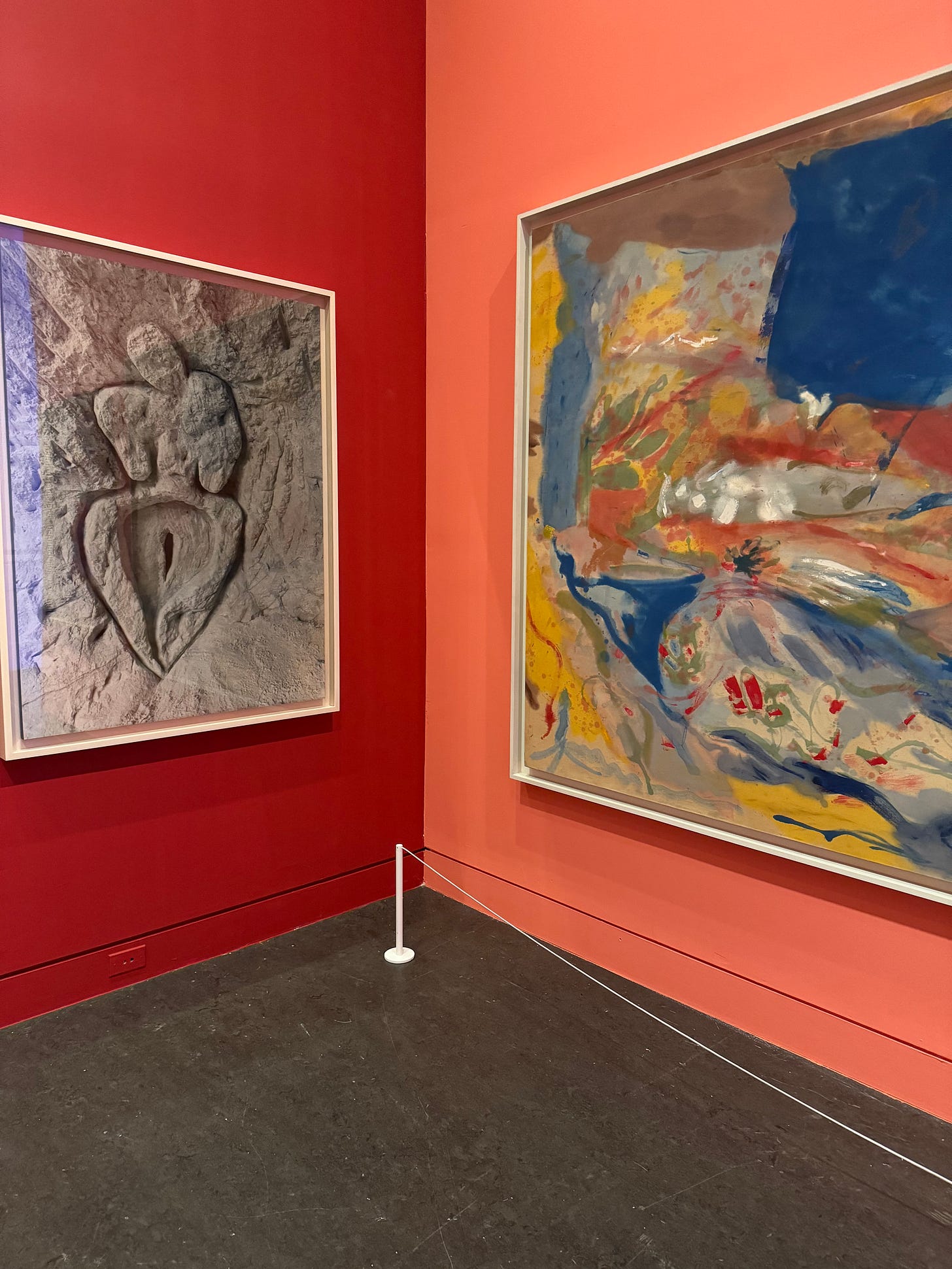
C: You have Fred now. I have to ask, what's it been like the second time around?
S: It's been so wonderful. I had that list and I found a doctor that was willing to comply with my list and all my criteria. I had a doula this time. I probably didn't need the doula because I was so clear with my doctor before, but it gave me such a sense of security to have like, a bodyguard there.
My birth was magical. I feel like such a freak saying that because I thought that was made up. It sounds like spiritual goddess bullshit. But, it really was spiritual and it really was magical. It was the best day ever. There were moments that were scary, there were things that hurt, but none of it was traumatic. I felt totally in control the whole time. One of the things that I demanded was an all female team because I've been sexually assaulted. I didn't want a man in there. Two of the women who worked with my anesthesiologist were pregnant. They had masks on, but they had fake eyelashes and amazing nails. We were talking about our high school boyfriends. I felt so secure. I knew I was in the hands of people who actually cared. It made such a difference to me. I loved Fred right away. I didn't know that she was a girl. That was really fun, the announcement, “It’s a girl!”
My first birth being as traumatic as it was, and I understand that it wasn't. I was never gonna die. No alarms went off. Most people when they hear me call my birth traumatic say, “What happened?” Nothing. But, it was still scary and awful - it was such a catalyst for that depression. Looking back I left the hospital shell-shocked and completely disassociated and detached from my kid. It was entirely because my birth was so miserable and had my doctor just been kind to me, I don't think I would have lost that. There would have been things that I felt rage about. I don't think any of us is exempt from realizing that our husbands have half the brain power that we do, but I don't think I would have been destroyed the way I was and lost a year of my life.
C: Reading your account about how you minimized what you went through because your birth wasn't ‘big T trauma,’ I felt the same way. Nothing happened, but I left the hospital exhausted, shell-shocked and all I wanted to do was sleep. It was all because my birth was terrible.
S: It’s like, what am I supposed to do now?
C: Yeah, exactly. Okay! Now for fun stuff. Who would your top three dinner party guests be, dead or alive?
S: Dolly Parton, Simone de Beauvoir and Cecile Richards.
C: What's the desert island product you can't live without?
S: Lip balm.
C: What kind?
C: I'm gonna show you my favorite lip balm [exits screen and comes back]. I just opened my lip balm drawer. My favorite lip balm, and I have maybe fifty of them, is from my dentist, Teeth by Keith.
C: That is not what I was expecting.
S: It’s so dorky. It's his organic, all natural, special blend that he makes himself and I'm obsessed with it. I carry them with me everywhere. There’s also that Homeoplasmine stuff that they sell in French pharmacies. Makeup artists rave about it. I always thought it can't be better than Aquaphor and turns out, it is. You use it for everything, too.
C: What does your nightstand look like right now?
S: I keep my journal on it because I journal first thing in the morning. I've been writing for years in the same one. It's a $300 Cartier journal that my mom bought me for Christmas one year. It's perfect. It has the perfect lines, perfect everything. It's the cheapest thing Cartier makes - I think they're going to discontinue it and then I have to quit being a writer. It’s my big indulgence. It’s so dumb. But it makes me happy every time I've written in it.
There’s also one million vitamins that my doctor has me on postpartum. I was really sick in my second pregnancy and was on medical bed rest for four months. I atrophied and gained ninety pounds. I had a liver condition that they discovered at the very end where the only symptom is being really itchy. For months I was saying, “I'm so itchy!” But, it was winter in New York. I got a humidifier and changed my sheets, I changed my detergent, I stayed in a hotel one night. This condition is fatal at thirty-seven weeks. They tested me at thirty-six weeks and said you have to deliver. It was horrible. It's called cholestasis. Nobody gets it.
C: You know, actually, I know one other person who had that! She was like, “I'm so itchy!” Then all of a sudden she was having the baby.
S: Yeah, they said you have to come in right now, it’s time!
C: The answer to this might be the cover of your book, but what’s your favorite painting depicting motherhood?
S: Weirdly, there aren't that many paintings depicting motherhood. I think it’s because so much art, especially art that’s lasted, is dictated by the art market. Historically, most collectors are white men. Rich white men don't like paintings of women and children and pregnancy and babies as much as they like paintings of other stuff. There isn't a ton of art history about birth or about motherhood. When there is, it's often been feminist and focused on the academic. There's a famous feminist work from the seventies by this woman named Mary Kelly who documented her body. Some of those things are really cool, but they're not beautiful, painterly works of art. In the early nineteenth century, a lot of the female impressionist painters, of which there were two, I say a lot, but, they painted their kids and themselves with their kids and that speaks to me. But, it's not about pregnancy or anything like that. Berthe Morisot is the most famous one.
C: Last question. What does your ultimate fantasy day in New York look like?
S: I would have to wake up in a hotel that I live in. I would say The Carlyle, but that's uptown, so let's say The Mercer, an incredible suite at The Mercer. I would do my workout. Then I'd have an amazing Coffee from The Elk. I think I would have lunch with friends somewhere really girly and fab like Le Bilboquet uptown. I would definitely shop. I would go to Chanel, but I would also go to MOMA and see Frankenthaler and Eva Hesse and all of my favorite artists. I would come downtown for dinner, and I think I would have dinner, probably at Balthazar.
C: That sounds gorgeous.
S: You approve?
C: I love that day. Actually, the last time that I saw you, which was years ago now, we had a pretty fab day with Harley -
S: - I was going to say, the L.A. version involves a La Scala chopped salad, an iced tea and a trip to Maxfield.
C: That’s exactly what we did and it was really wonderful.
S: A delight and we’ll do it again!
C: It was so good to see you. Thank you, again!
This interview has been edited for length and clarity. All photos (sans book cover) courtesy of Sarah Hoover.


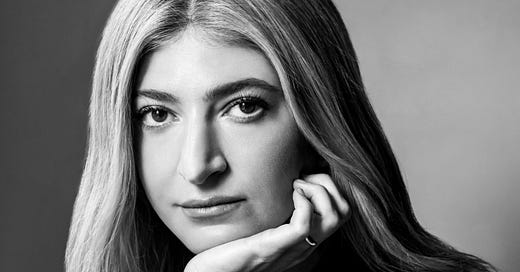


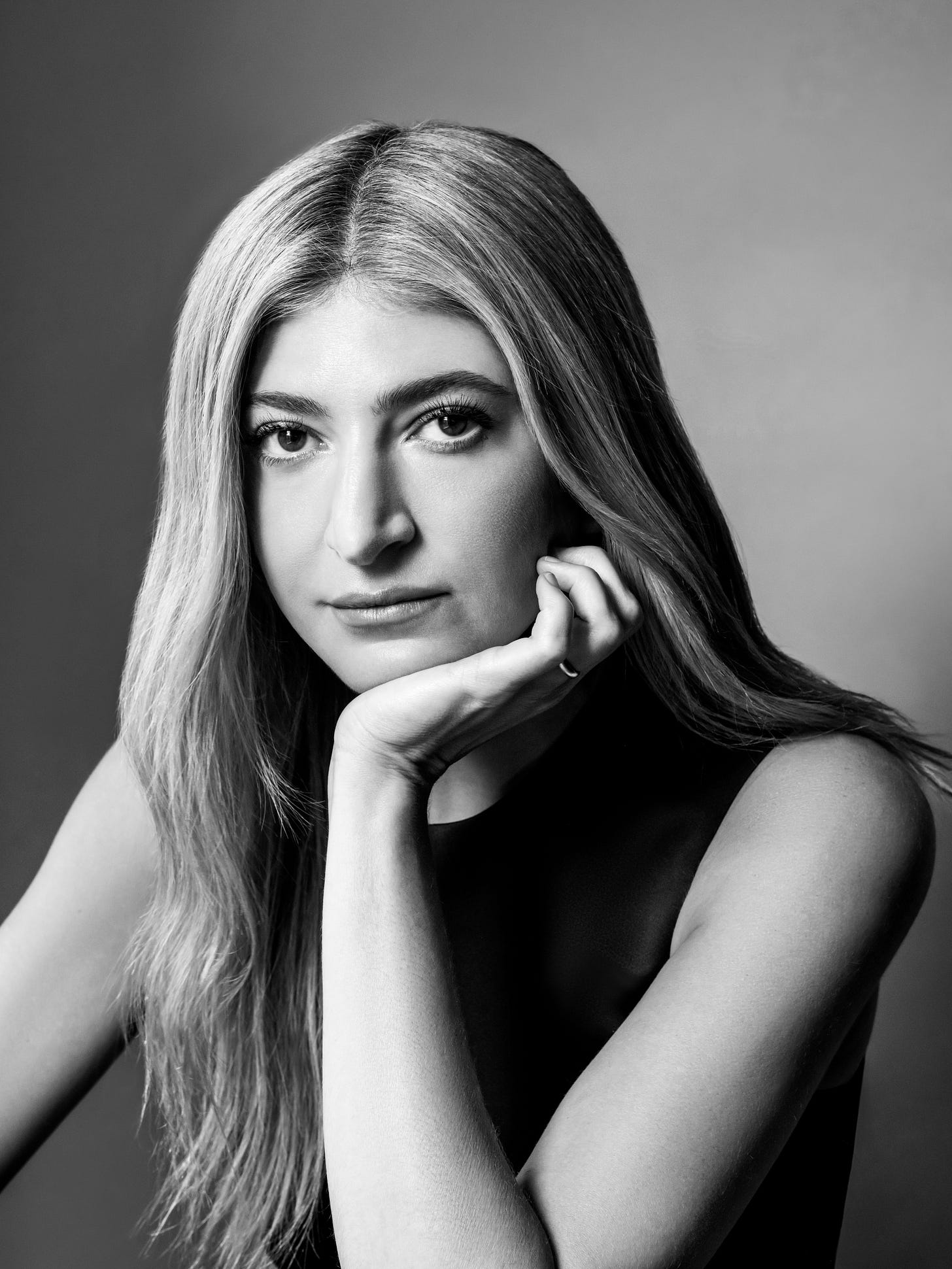
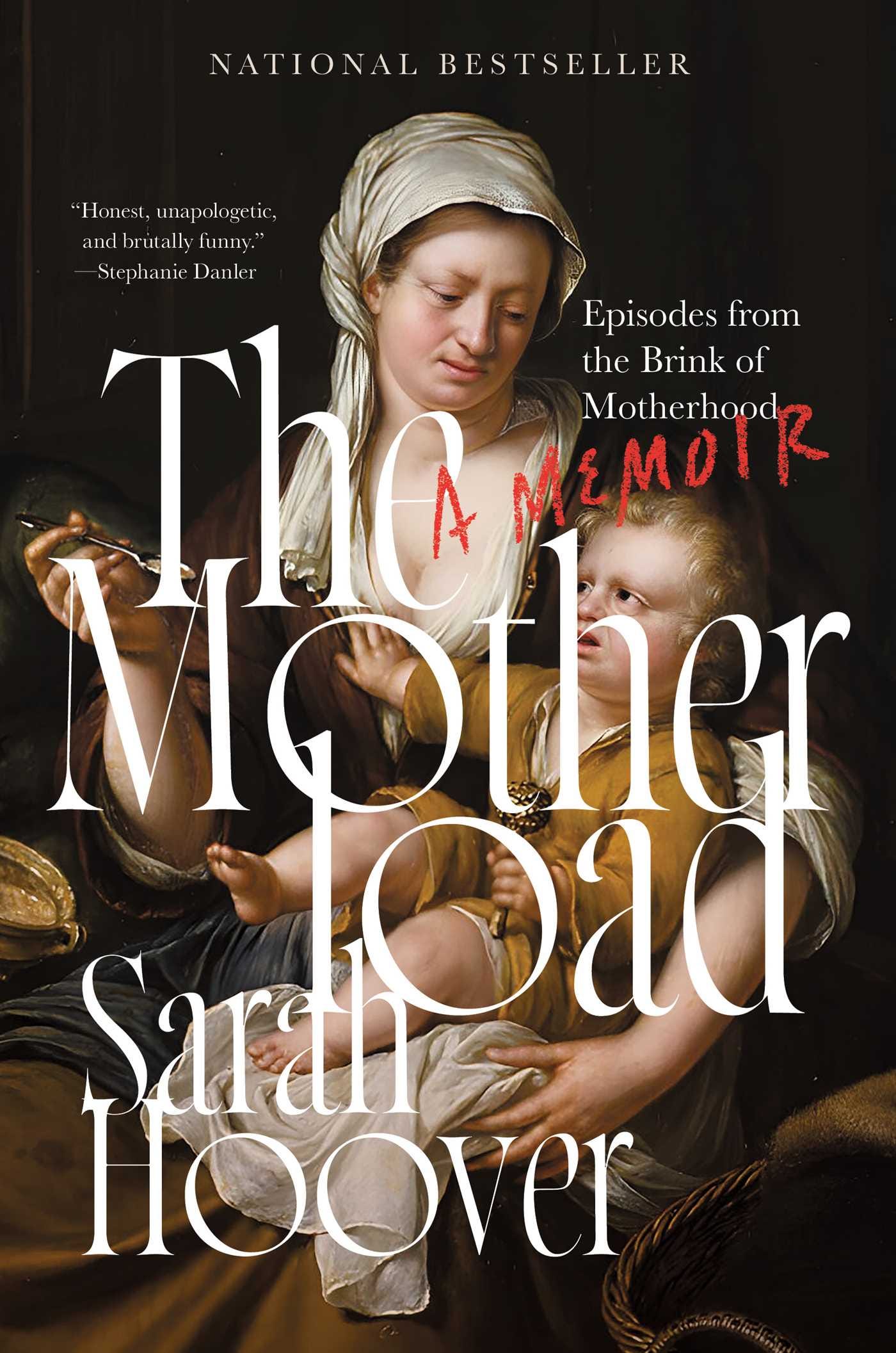
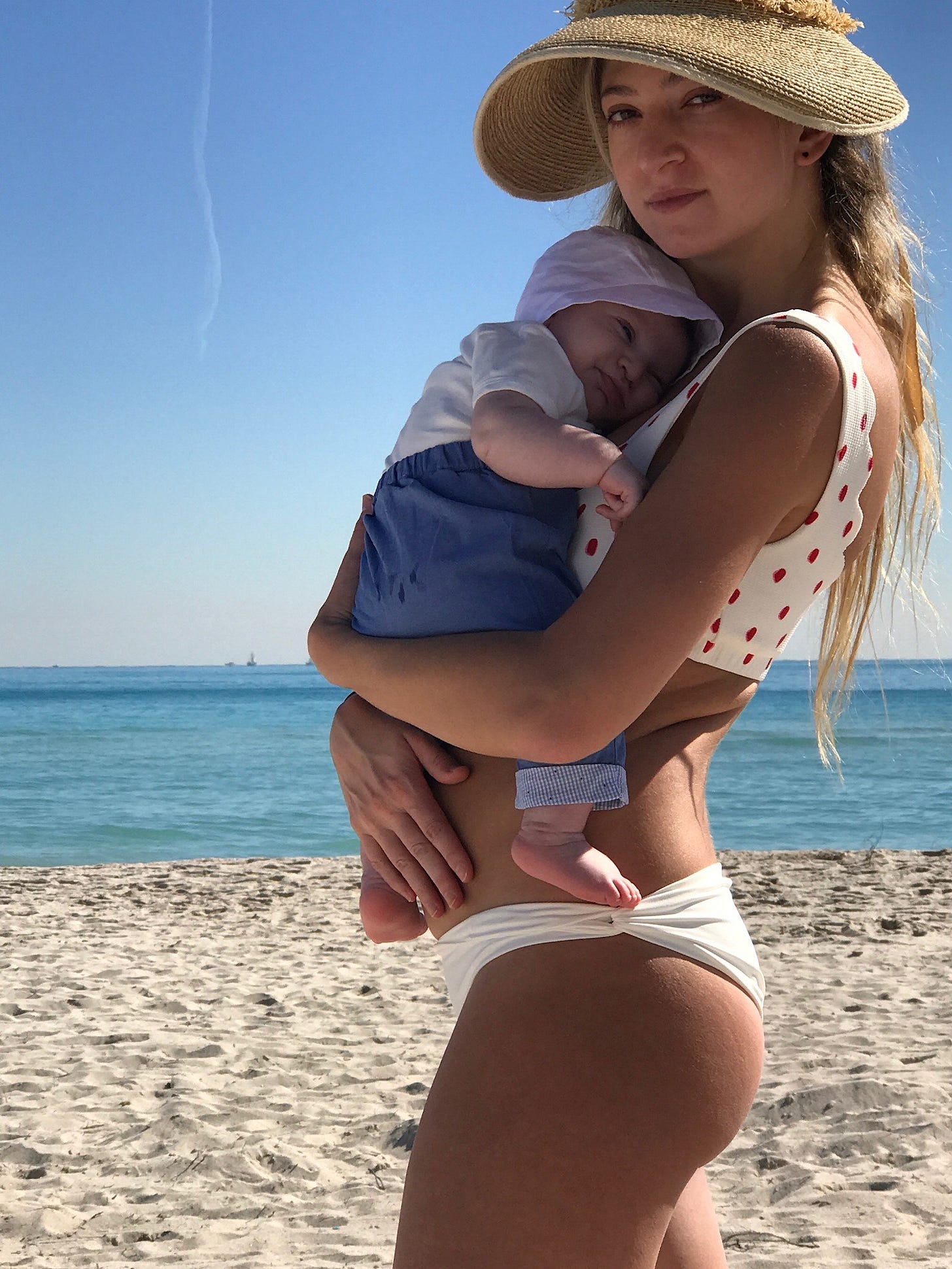
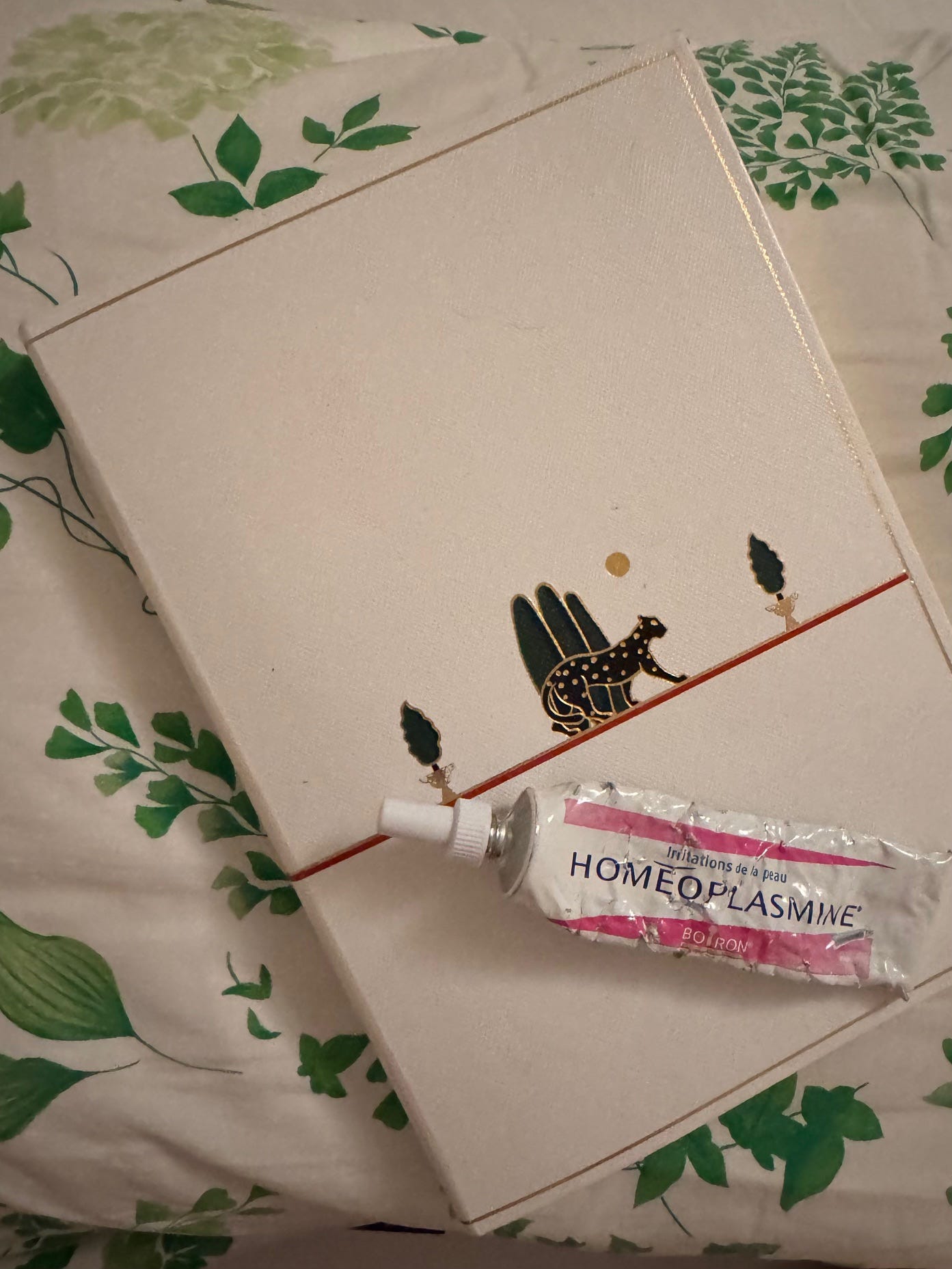
Another fabulous piece!! 💕
Really enjoyed this, Courtney! You know, it's interesting, when I shared my recent piece "Before I Forget" – only a couple of hours later, I was reminded by a friend that I completely forgot how traumatised I felt for the first two weeks after birth. I remember saying to a friend, "I guess the big things went to plan and on paper, it was pretty perfect... and I still feel as if I've undergone a huge trauma."
But given that it was "pretty perfect", that feeling did go away – and I appreciate I'm very much one of the lucky ones who could have the feeling "go away". I do wonder if there's something about the first birth that is a "trauma" in a way we don't do enough to discuss or comprehend... We're told to make a plan, but that the plan will likely not "go to plan", and you just have to trust you'll come out the other end with your healthy child. Would love to know your thoughts x